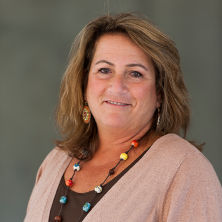
Genevieve Zipp , P.T., Ed.D., FNAP
Program Director, Ph. D. in Health Sciences
Department of Interprofessional Health Sciences and Health Administration
(973) 275-2457
Email
Interprofessional Health Sciences Campus
Room 432
Genevieve Zipp, P.T., Ed.D., FNAP
Program Director, Ph. D. in Health Sciences
Department of Interprofessional Health Sciences and Health Administration

